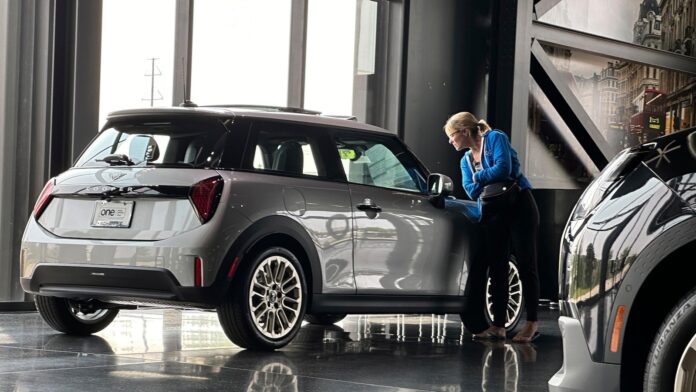WASHINGTON — An increase in optimism among Democrats about Vice President Kamala Harris’s prospects led to a modest improvement in U.S. consumer confidence this month.
The University of Michigan consumer confidence index rose slightly to 67.8 from 66.4 in July. Americans’ expectations for the future rose, while their assessment of current economic conditions fell slightly.
Democrats and political independents’ spirits rose. Republican sentiment fell. The survey found that 41% of consumers thought Harris was the better candidate on the economy, compared to 38% who preferred Republican nominee Donald Trump. Before President Joe Biden dropped out of the presidential race and made way for Harris, Trump had a lead on this issue.
The Michigan index has recovered after hitting a low of 50 in June 2022, when inflation hit a four-decade high. But it remains well below healthy levels. Before COVID-19 hit the economy in early 2020 — triggering a recession followed by an unexpectedly strong recovery that unleashed inflation — the Michigan index regularly traded in the 90s and occasionally topped 100.
“Consumers are still quite downbeat overall compared to historical norms, but sentiment is trending better,” said Carl Weinberg, chief economist at High Frequency Economics.
Economists monitor Americans’ moods to gauge whether they feel like shopping. This is important because Americans’ spending accounts for about 70% of U.S. economic activity.
Americans have been feeling cranky since inflation hit more than three years ago. With the November presidential election approaching, many have blamed President Biden for the higher prices.
Despite their sour mood, American consumers have continued to spend. In large part because of that, the economy expanded at a healthy annual pace of 2.8% from April through June. And their spending has continued into the current quarter: The Commerce Department reported Thursday that retail sales rose 1% from June through July, the biggest jump since January 2023, thanks to strong sales at electronics stores, grocery stores and auto dealerships.
The Federal Reserve responded to the inflation surge by raising its benchmark interest rate 11 times in 2022 and 2023, bringing it to a 23-year high. Inflation has cooled significantly since peaking at 9.1% in June 2022. It had fallen to 2.9% last month, moving closer to the Fed’s 2% target.
The central bank is now widely expected to cut rates at its next meeting in September.



